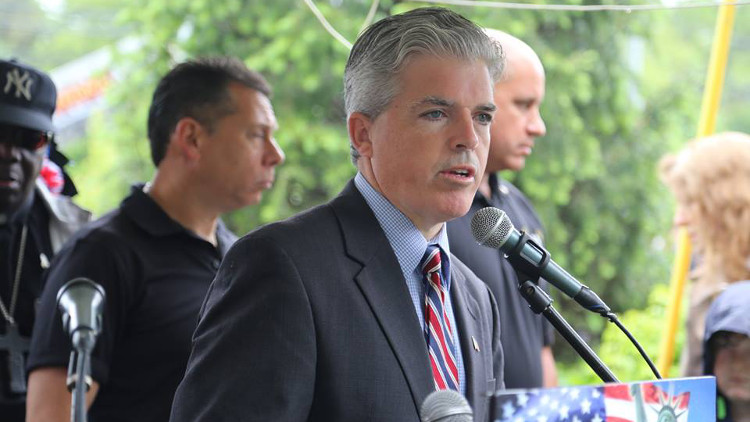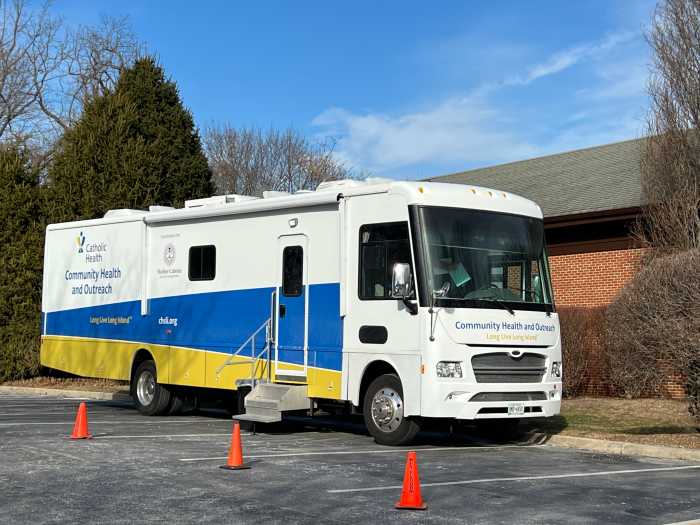In April, Suffolk County became the first county in New York to take advantage of state tax code reforms designed to provide an end run around the new federal cap on state and local tax deductions, known as SALT.
Suffolk County Executive Steve Bellone signed legislation to establish a county-sponsored charitable gift reserve fund, allowing taxpayers to make contributions that, in turn, result in a reduction of their county tax bills. Because the contributions are treated as charitable gifts, they would not be subject to the SALT deduction cap—therefore enabling taxpayers to reclaim the full tax deduction they had enjoyed before the federal Tax Cuts and Jobs Act of 2017.
However, the IRS has indicated that the plan will not be allowed to proceed. The IRS has proposed regulations that would prohibit taxpayers from taking a deduction on their federal tax returns if their “charitable gifts” to their state and localities are made for the sake of reducing their state and local tax bills.
The county’s move is part of Bellone’s “SALT Cap Response Plan,” which seeks to mitigate the cap’s effects on Suffolk County’s economy and housing market and also includes advocacy on the federal level to repeal the cap.
The SALT deduction cap is now $5,000 for individuals and $10,000 for married couples. High-tax states like New York are particularly affected by the cap, because many homeowners have property taxes that exceed the cap even before counting their state income taxes.
The county executive’s office noted that, according to the Urban-Brookings Tax Policy Center in Washington, a total of nearly 530,000 homeowners, or more than one in three tax filers in Nassau and Suffolk counties, are affected by the cap.
There already has been tax shock for thousands of families, Bellone said during a recent interview.
“We were with people the other day who didn’t change anything, but they normally get a couple of thousand in a refund, and not only didn’t get a refund but owed thousands of dollars,” he said.
There is an immediate impact on the ability of families to take a vacation or invest in their kids’ education, he added.
“If we don’t reverse this, there are long-term implications for our economy and our housing market—and they’re not good,” Bellone said. “And that’s why there is an urgency to this. This is going to take some time to get up. … It’s not something we can start on a dime. So we need to be doing this now, in the event that we’re unsuccessful in getting this repealed.”
In August, the U.S. Treasury Department and the IRS proposed rules on whether taxpayers may take charitable contribution deductions while expecting to receive a corresponding state or local tax credit. The proposal states that if a taxpayer receives a local or state tax credit in exchange for a contribution, the amount of the credit cannot be declared as a tax deduction on federal tax returns.
Bellone said the charitable gift reserve fund plan put forth by New York State uses existing provisions of the federal tax code. He noted that when he went to Washington, D.C., last year, he made the case to the IRS directly that if the agency wants to change the rules to prevent what New York is doing then it must go to Congress to seek the change.
For the IRS to change the rules independently in response to states’ actions, is arbitrary and capricious and will not withstand legal scrutiny, he said.
“We’re hopeful that the IRS will amend those proposed regulations, but if they don’t, then we are willing to go to court on this issue,” the county executive added.
For the plan to have a significant effect on Suffolk residents’ federal tax bills, it will require buy-in from an array of jurisdictions. Each taxing authority that appears on a homeowner’s property tax bill, from town governments and school districts to fire districts, would have to create charitable funds and allow taxpayers who send money to those funds to offset their tax bills.
“We’re very hopeful that once people see this that every taxing jurisdiction is going to want to protect their taxpayers,” Bellone said. “So we’re going to be having those conversations. We’re looking to have this live for 2020, so we’re going to be having these conversations over the next six months with jurisdictions as we put these structures in place.”
If successful, the county will also seek to streamline the process for taxpayers.
“It would apply to every part of your tax bill where the jurisdiction has authorized you to do this or created the structure,” Bellone said. “So what we’re trying to do—we want to make this as seamless and easy for people as possible. We want to set up a framework as part of our shared services program where the county could act as administrator for the different charitable funds that exist throughout the county.”
Checks would be sent to just one entity, rather than to every individual taxing authority that participates.
Because putting this together will take time, the earliest that taxpayers would feel the benefit would be when they file their 2020 taxes by Tax Day in April 2021.
While repeal of the SALT deduction cap would be his preference, Bellone said that repeal cannot be counted on.
“We have businesses here who are constantly getting pitched by different jurisdictions around the country, so this is a long-term issue for us,” he said. “If this is not repealed, we’ve got to have something in place that is going to mitigate the damage from this. And that’s why we’re moving now to set this up. Hopefully, honestly, we never have to use this, and this gets repealed. But the potential damage to our economy and our housing market is so great here that we’ve got to make sure that we’re moving to get these structures set up.”
Though there is a fair degree of bipartisan support in the U.S. House of Representatives to repeal the cap and reinstate the full SALT deduction—including the support of U.S. Rep. Lee Zeldin (R-Shirley)—the idea has no traction in the U.S. Senate, where Finance Committee Chairman Chuck Grassley (R-Iowa) says he will not take up the matter.
Bellone, a Democrat, said the Long Island congressional delegation—a mix of Democrats and Republicans—favors repeal.
“We don’t always agree—but on this, this is really a Long Island issue,” he said. “They understand that we send way more money to Washington than we ever get in return. When we come together on issues like this that are really about protecting Long Island and protecting New York, I think it’s a good thing.”
Repeal is not likely to pass in Washington right now, Bellone acknowledged, but he added that things change there.
“We’re going to keep the pressure up, and we’re going to keep the issue in the forefront,” he said. “And that’s an important point. If Washington thought that this is something that will be a short-term issue—people will be upset for a short period of time, and then it will eventually fade away—we want to make it clear to them that this is never going away. We are not going to stop till this gets repealed, until our SALT deductions are fully restored.”
This article first appeared in the Southampton Press.


































